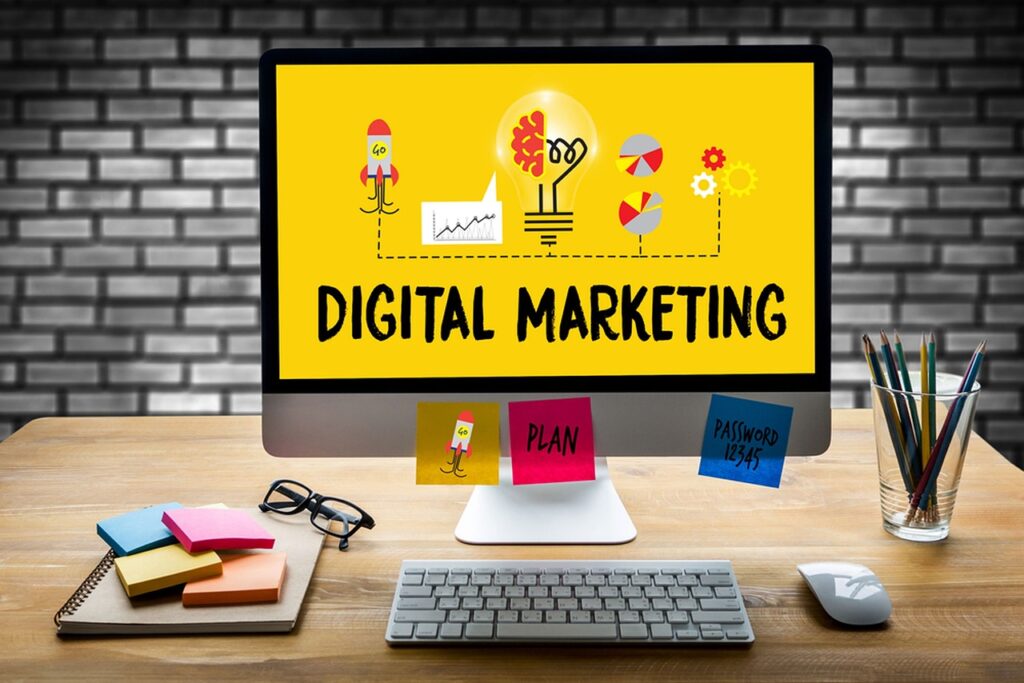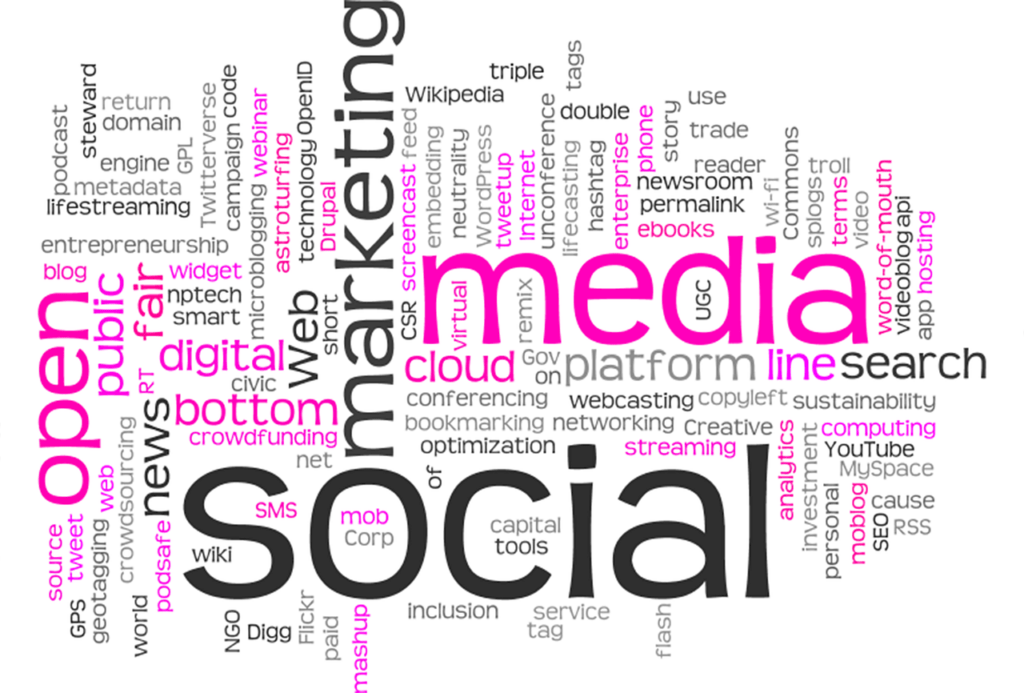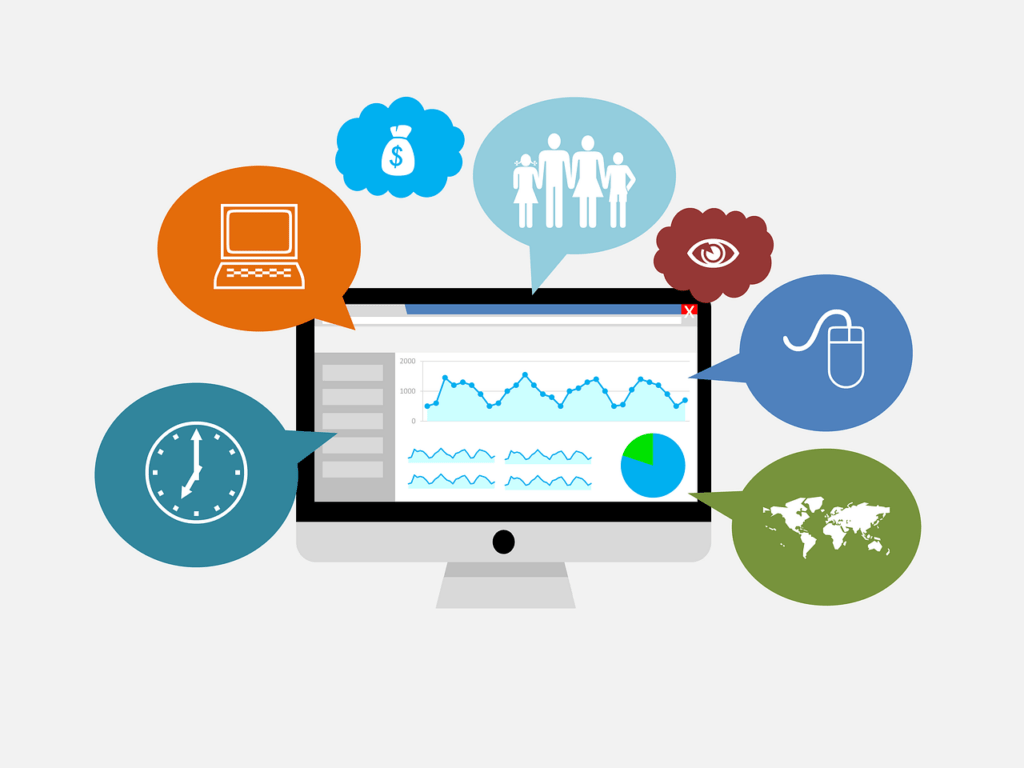Introduction
What is Digital Marketing?
Digital marketing is a dynamic strategy that utilizes various online platforms and technologies to connect with target audiences, driving brand awareness, engagement, and conversions. By harnessing the power of digital channels like search engines, social media, email, and content, businesses can precisely target and engage their ideal customers, while also measuring and optimizing campaign performance in real-time, ultimately leading to greater ROI and business success in the digital landscape.

Digital marketing refers to the use of various digital channels and technologies to promote products or services to potential customers. It encompasses a wide range of tactics and strategies aimed at reaching and engaging target audiences online. Some common components of digital marketing include:

Search Engine Optimization (SEO):
SEO involves optimizing your website’s content, structure, and backend elements to rank higher in search engine results pages (SERPs) for relevant keywords and phrases. This increases organic (non-paid) traffic to your site, enhances visibility, and improves the likelihood of attracting qualified leads and customers.
Search Engine Marketing (SEM):
SEM encompasses paid advertising efforts to appear prominently in search engine results. This often involves pay-per-click (PPC) campaigns, where advertisers bid on keywords to display ads to users searching for related queries. SEM allows for precise targeting, immediate visibility, and measurable results.
Social Media Marketing (SMM):
SMM involves using social media platforms such as Facebook, Instagram, Twitter, LinkedIn, and others to connect with your audience, build brand awareness, and drive engagement and traffic. SMM strategies include organic content posting, paid advertising, influencer partnerships, and community engagement.
Content Marketing:
Content marketing focuses on creating and distributing valuable, relevant, and consistent content to attract and retain a clearly defined audience. This content can take various forms, including blog posts, articles, videos, infographics, ebooks, podcasts, and more. Content marketing helps build trust, credibility, and authority, while also driving traffic, generating leads, and nurturing customer relationships.


Email Marketing:
Email marketing involves sending targeted, personalized emails to prospects and customers to promote products or services, share valuable content, deliver offers or promotions, provide updates, and nurture leads through the sales funnel. Effective email marketing relies on segmentation, automation, and optimization to deliver relevant messages and drive engagement and conversions.
Affiliate Marketing:
Affiliate marketing is a performance-based marketing strategy where businesses partner with affiliates (individuals or other businesses) who promote their products or services in exchange for a commission on sales generated through their referral. Affiliate marketing leverages the influence and reach of affiliates to expand brand awareness, drive traffic, and increase sales.
Influencer Marketing:
Influencer marketing involves collaborating with influencers—individuals with a significant following and influence on social media—to promote your brand, products, or services to their audience. Influencers can help increase brand credibility, reach new audiences, and drive engagement and conversions through authentic and relatable content.

Online Advertising:
Online advertising encompasses various digital advertising formats and platforms, including display ads, banner ads, video ads, native ads, and more. These ads are displayed on websites, apps, social media platforms, and search engines to reach target audiences and drive traffic, leads, and sales. Online advertising offers precise targeting options, real-time tracking, and scalability for effective campaign management.
Mobile Marketing:
Mobile marketing focuses on optimizing marketing efforts for mobile devices, including smartphones and tablets. This includes mobile-friendly website design, mobile apps, SMS marketing, mobile advertising, and location-based marketing strategies. With the increasing use of mobile devices, mobile marketing allows businesses to reach consumers anytime, anywhere, and deliver personalized and contextually relevant experiences.
Analytics and Data-driven Marketing:
Analytics and data-driven marketing involve leveraging data and analytics tools to track, measure, and analyze the performance of digital marketing campaigns. This includes monitoring key performance indicators (KPIs), analyzing user behavior, identifying trends and insights, and making data-driven decisions to optimize marketing strategies for better results and ROI.


Conclusion
In conclusion, digital marketing represents a dynamic and multifaceted approach to reaching and engaging with target audiences in the digital age. By leveraging a combination of strategies such as SEO, SEM, SMM, content marketing, email marketing, affiliate marketing, influencer marketing, online advertising, mobile marketing, and data-driven analytics, businesses can effectively connect with consumers across various digital channels and platforms.
Digital marketing offers unparalleled opportunities for precise targeting, real-time tracking, and optimization, enabling businesses to achieve higher ROI and drive growth and success in today’s competitive marketplace. As technology continues to evolve and consumer behaviors shift, digital marketing remains an essential tool for businesses looking to establish a strong online presence, build meaningful relationships with their audience, and ultimately drive business results in the digital landscape.
